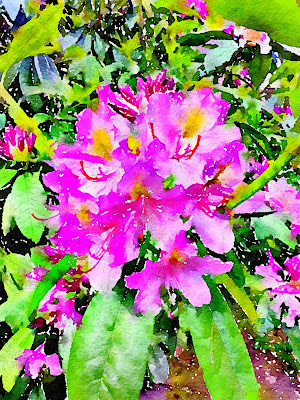Top Ten Tuesday: Nonfiction Books about Animals.
I did a TTT post in 2021 about
animal companions here. I used up an awful lot of good examples, so let me encourage you to head over and look at that list. In an effort to not create the same list again I decided to focus on information books about animals. Links take you to my reviews or to Goodreads.
In this short, delightful book, Sy takes us inside the flock and reveals all the things that make chickens such remarkable only hours after leaving the egg, they are able to walk, run, and peck; relationships are important to them and the average chicken can recognize more than one hundred other chickens; they remember the past and anticipate the future; and they communicate specific information through at least twenty-four distinct calls. With a winning combination of personal narrative and science, What the Chicken Knows is exactly the kind of book that has made Sy Montgomery such a beloved and popular author.
A solitary woman’s inspiring, moving, surprising, and often funny memoir about the transformative power of her unusual friendship with a wild fox, a new window onto the natural world.
Pack your teddy and your bear-proof lunchbox and join us on a thrilling international adventure to meet the world's eight species of bears. From polar bears to giant pandas, from spectacled bears to the asiatic moon bears, find out what makes bears so amazing. (I read this book with my grandson and we both enjoyed learning about the different types of bears together.)
In this poignant, funny, and disarmingly honest memoir, one of the world’s most beloved storytellers, tells of his family’s adoption of three troublesome rescue dogs—a charming and courageous love story about making even the most incorrigible of animals family.
In 2016, Amy Tan grew overwhelmed by the state of the Hatred and misinformation became a daily presence on social media, and the country felt more divisive than ever. In search of peace, Tan turned toward the natural world just beyond her window and, specifically, the birds visiting her yard. But what began as an attempt to find solace turned into something far greater—an opportunity to savor quiet moments during a volatile time, connect to nature in a meaningful way, and imagine the intricate lives of the birds she admired.
Imagine the life of a jumper spider in your own backyard. Imagine it from the spider's point of view, too. That is what Jumper is all about. Imagine sensing sounds and sight through vibrations. Picture what this small spider must have to do to avoid predators (birds and larger insects) and what she has to do to become a predator herself. Perfect for children of all ages.
The heartbreaking and ultimately hopeful story of an abandoned polar bear cub named Nora and the humans working tirelessly to save her and her species, whose uncertain future in the accelerating climate crisis is closely tied to our own.
Wombats Are Pretty Weird is funny, kid-friendly, and informative, and features sidebars, comic panels, extensive backmatter, and a map. Acclaimed author-illustrator Abi Cushman’s nonfiction debut contains everything anyone could ever possibly want to know about wombats!
In sharp and witty prose Schrefer uses science, history, anthropology, and sociology to illustrate the diversity of sexual behavior in the animal world. Queer behavior in animals is as diverse and complex--and as natural--as it is in our own species. It doesn't set us apart from animals--it bonds us even closer to our animal selves.
Scientists have only recently accepted the intelligence of dogs, birds, and chimpanzees but now are watching octopuses solve problems and are trying to decipher the meaning of the animal’s color-changing techniques. With her “joyful passion for these intelligent and fascinating creatures” Montgomery chronicles the growing appreciation of this mollusk as she tells a unique love story. By turns funny, entertaining, touching, and profound, The Soul of an Octopus reveals what octopuses can teach us about the meeting of two very different minds.
A stunning celebration of birds and why we love them. Gorgeous, close-up photographs highlight the magic in every feather, with enchanting essays about how birds touch our lives.
We know dogs are our best animal friends, but have you ever thought about what that might mean? Fossils show we’ve shared our work and homes with dogs for tens of thousands of years. Now there’s growing evidence that we influenced dogs’ evolution—and they, in turn, changed ours. Combining history, paleontology, biology, and cutting-edge medical science, Frydenborg paints a picture of how two different species became deeply entwined—and how we coevolved into the species we are today.
"H is for Hawk" is a record of a spiritual journey - an unflinchingly honest account of MacDonald's struggle with grief during the difficult process of the hawk's taming and her own untaming. At the same time, it's a kaleidoscopic biography of the brilliant and troubled novelist T. H. White, best known for "The Once and Future King."
This book that asks what dogs know and how they think. The answers will surprise and delight you as Alexandra Horowitz, a cognitive scientist, explains how dogs perceive their daily worlds, each other, and that other quirky animal, the human.
-Anne




































